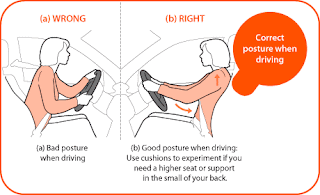 |
 |
You must have heard about the most popular ailment common to the tropics. It has lived with us for many years and is still very much on the pages of the books, newspapers, internet and most importantly in our homes. Incidentally though the cause is known and diagnosis can be carried out by a simple test, expectations that malaria be found only listed as one of those ailment with complete eradication but has eluded mankind. Literature has made information available in less than simple terms and thus creates difficulties for people to correctly describe its symptoms to their physicians. If you live in or want to visit any mosquito infested region such as Africa, Asia and Latin America, you will want the answer to one of the most important questions about malaria which are:
what really causes malaria, how do I prevent it and how do I identify the symptoms. Whilst some people think you need to be stung by a swarm of mosquitoes to come down with the ailment, it is hardly true. I know lots of people who get really bitten by the bug and nothing happens. On the other hand, some other people need to be bitten once or only a few times to they become sick. A good example would be to consider a house with five people living in it, while one or two persons may not have malaria in years, the other co-habitants could have several episodes even up to eight episodes during the same time, under similar circumstances. This can be explained partly by the fact that we all have different resistance levels and not all bugs carry plasmodium (the pathogen which causes malaria) at every time “T”. The bottom line remains prevention of a bite from the bug.
what really causes malaria, how do I prevent it and how do I identify the symptoms. Whilst some people think you need to be stung by a swarm of mosquitoes to come down with the ailment, it is hardly true. I know lots of people who get really bitten by the bug and nothing happens. On the other hand, some other people need to be bitten once or only a few times to they become sick. A good example would be to consider a house with five people living in it, while one or two persons may not have malaria in years, the other co-habitants could have several episodes even up to eight episodes during the same time, under similar circumstances. This can be explained partly by the fact that we all have different resistance levels and not all bugs carry plasmodium (the pathogen which causes malaria) at every time “T”. The bottom line remains prevention of a bite from the bug.
If you don’t know what the bug looks like then look up pictures on the internet. To avoid confusion, Mosquitoes are small and thin flying insects (not even as large as a housefly) but are drawn boldly in diagrams for a clearer view. So if you stay in the temperate region and want to visit the tropics this is food for thought as per how to prevent coming down with malaria when you are on holiday. It is important to mention here that children are also more susceptible to having malaria much like elderly ones remember- extremes of age. Don’t get carried away by the intense sunlight in this region to believe that mosquitoes don’t bite during the day; the truth is they are capable of biting an individual at any time of the day though more at night. The use of clothing to cover our bodies is very important. Some clothing especially those made from see-through material such as hose, chiffon offer little or no protection if you spend a lot of time outdoors choose other suitable material to cover your arms, legs, back and trunk.
It is not difficult to get bitten by a mosquito and most times you may not be aware of the time the bite occured. It would take a few days if bitten by an infected mosquito to start showing signs. Don’t expect to see a huge swelling or think that the presence of a rash on your body indicates a bite. Bites could be multiple and one notices most times when they start to itch. Fair skinned people or Caucasians would clearly demonstrate redness of the area of the bite. You can identify a mosquito bite because it itches; secondly it is slightly raised and it expands in size when you itch. The bite does not contain any fuid and is not pointed at the tip like a boil or pimple. I must mention here that this description is to help visitors, those with the sickle gene, immunocompromised, dependants such as children and elderly who are prone to having more difficult episodes tighten their protection and prevention tactics. Your arms, legs are the areas that get bitten the most becomes they are usually exposed but pretty much any area could be affected. If you start to notice a spread or pattern of bites marks around your whole body or you notice that you start to have difficulty in breathing a bite then you might be looking at something else other than a mosquito maybe an infectious process such as measles or bee sting.



























